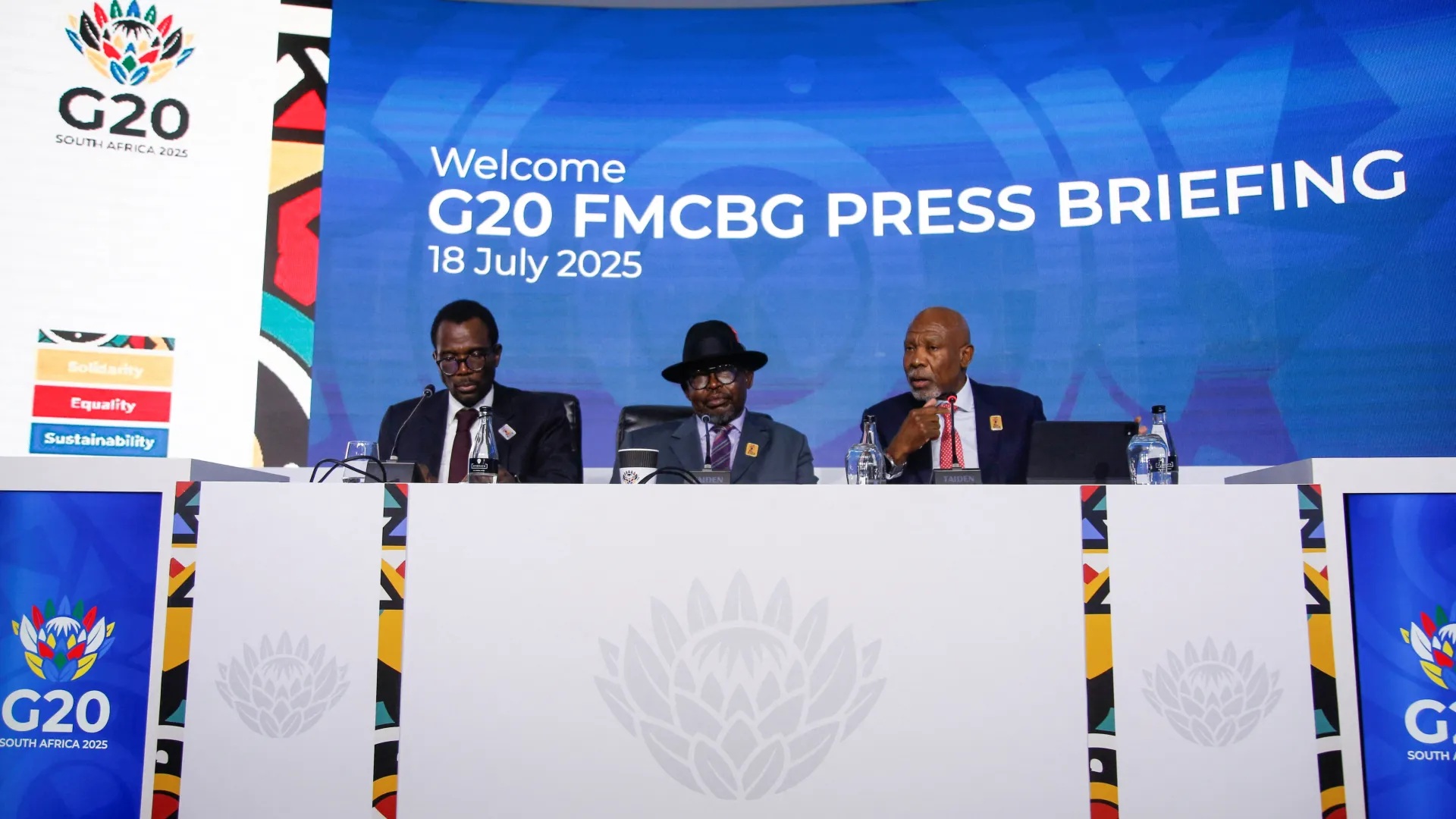After two days of intense deliberations in Durban, South Africa, Group of 20 (G20) finance ministers and central bank governors reached a landmark consensus, issuing their first communique since October 2024.
Central to their agreement: safeguarding the autonomy of central banks amid increasing economic headwinds and reaffirming faith in the World Trade Organisation (WTO) as essential to global stability.
Upholding Central Bank Independence
In a joint declaration, the G20 reaffirmed that “central banks are strongly committed to ensuring price stability, consistent with their respective mandates.
It also reaffirmed that the central banks will continue to adjust their policies in a data-dependent manner,” adding that “central bank independence is crucial to achieving this goal”
This comes amidst mounting pressure, especially from U.S. President Donald Trump, against Jerome Powell and the Federal Reserve’s cautious pace on interest-rate changes.
Germany’s Bundesbank leader echoed that interfering in monetary policy threatens market trust
Broad Economic Threats Highlighted
Ministers pinpointed persistent global vulnerabilities: geopolitical unrest, trade frictions, supply-chain bottlenecks, mounting debt burdens, and severe weather events
They emphasized that these disruptive forces continue to cloud the international economic horizon and urged a strengthened commitment to multilateral cooperation as a remedy.
WTO Reform and Trade Resilience
A strong endorsement was offered to the WTO: ministers affirmed its importance as a backbone of the global trading framework and called for “meaningful, necessary, and comprehensive reform” to adapt to today’s policy landscape
The communique deliberately sidestepped heated language such as “tariffs,” opting for the more diplomatic “trade tensions”
Addressing Debt Vulnerabilities
The final statement reinforced commitment to bolstering debt relief mechanisms, especially for lower-income nations.
It urged enhanced transparency and stronger implementation of the G20 Common Framework for debt restructuring
Africa and Infrastructure at the Forefront
Under South Africa’s presidency, the Durban meeting spotlighted African development priorities.
Ministers highlighted the urgent need to mobilize finance for climate resilience and infrastructure, with the IMF supporting a “continued focus on domestic revenue mobilization” and sustainable growth
U.S. Diplomacy and G20 Restructuring
Notably, U.S. Treasury Secretary Scott Bessent was absent—replaced by acting undersecretary Michael Kaplan, marking the second finance-level no-show by Bessent since February
Meanwhile, as Washington prepares for its G20 presidency beginning in December, it plans to streamline the forum, concentrating on finance while dropping clusters on energy, climate, trade, and health
What Didn’t Make the Cut
Despite reference to “extreme weather events and natural disasters,” direct mentions of climate change were omitted.
Likewise, while “ongoing wars and conflicts” were acknowledged, there was no explicit citing of Ukraine, the Middle East, or other geopolitical flashpoints
Why This Matters
This communique marks a subtle but significant victory for multilateralism. After half a year of discord and missed declarations, the G20’s agreement signals renewed momentum.
This is especially with the U.S. poised to take the helm.
Anchoring the declaration in monetary autonomy, trade cohesion, and global debt relief offers a foundation to navigate future instability.
With global growth forecast at a subdued 2.8% in 2025 and 3.0% in 2026, well below historical averages, international coordination is proving to be more critical than ever
By reinforcing cooperation, the G20 ministers aim to bolster confidence among investors and consumers alike, and to ensure that global institutions remain effective in crisis response.
As global expectations rise, the Durban communique sets a clear agenda: defend central bank autonomy, revitalize trade partnerships, fund critical development, and steer the global economy through increasingly complex challenges.
With the U.S. presidency approaching, the world will now be watching whether this fragile consensus translates into concrete action.







